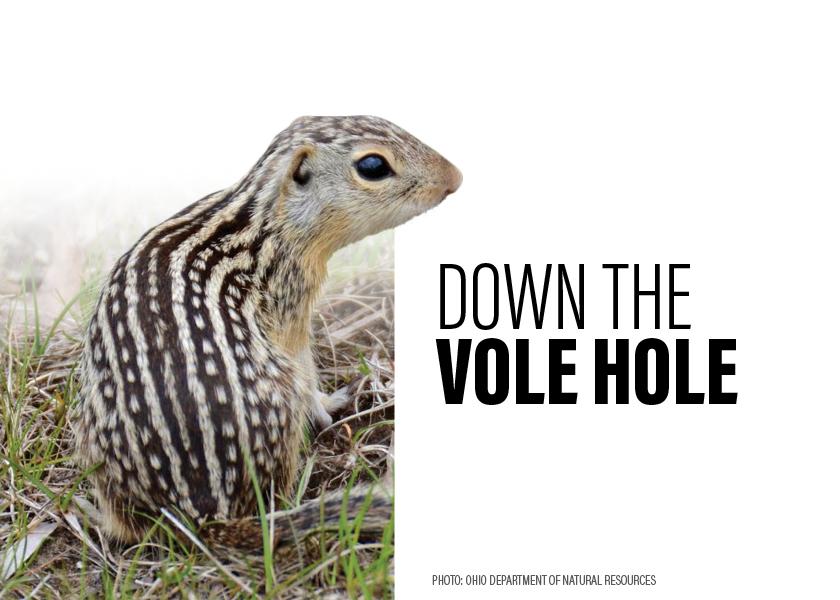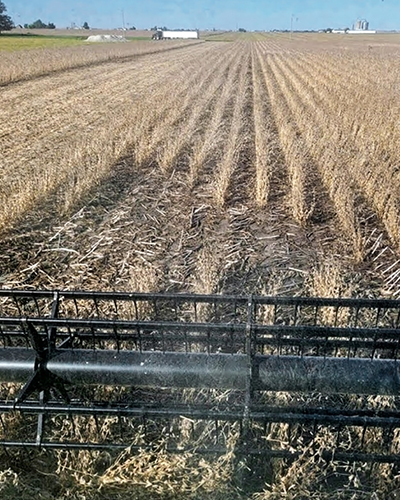Unspoken Truths About Pests: Down The Vole Hole

Ground squirrels and voles take tiny bites from soybean fields. The slow bleed over successive seasons is often considered part of the cost of farming, particularly in no-till ground. But, more worrisome than yield loss is an un-comfortable numbers game: Rodent depredation on some Midwest farms is increasing.
Three central Illinois soybean farmers describe their field dynamics related to consistent ground squirrel and vole presence, and voice concerns over population growth.

EXCESSIVE SPREADING
In central Illinois’ DeWitt County, Don Schlesinger is pestered by the growing persistence of ground squirrels. Schlesinger has grown no-till corn and soybeans since 1990 and has consistently experienced a degree of ground squirrel presence, but over the past five years, the population has jumped.
“All I know is they’re becoming more prevalent,” he says. “No question. They’ve gotten worse over time and once they settle one colony, they move off and form a new colony and move right across a field.”
The ground squirrels dig out dens within Schlesinger’s soybean fields and devour seeds. “In spring, they eat my seeds and leave pockets between 6' to 20' across. They take every seed in the area and that hole fills with grass and weeds. We’ll try and shoot them, or some people put out poison baits, but they keep spreading.”
Tillage to break up dens and destroy tunnels is contrary to Schlesinger’s agronomic system, but he is considering an exception, entirely due to ground squirrels.
“We’ll probably have to do some tillage to break their runs and colonies,” he says. “This problem is not unique to me, my no-till neighbors are in the same situation.”

NUISANCE YOU CAN’T IGNORE
Voles, along with ground squirrels, are a constant thorn for DeWitt County producer Bob Kuntz. Bare spots in his no-till soybean fields are plain testament to growing rodent pressure, he explains.
“I’ve got voles and ground squirrels, and they have been here forever, but in the past 10 years or so, they are really spreading,” he says. “You can put out poison baits or try and shoot the ground squirrels, but if you’re on no-till or min-imum-till, you can only do so much to stop them.”
Kuntz says voles and ground squirrels are a nuisance he can no longer afford to ignore. “It’s not something to hurt your crop overall, but it’s a steady small loss, and something that gets more and more of my attention as they keep spreading.”
ANNIHILATE EVERY SEED
A half hour north of Bloomington, Ill., in Livingston County, Doug Raber grows no-till soybeans and strip-till corn. Over the past 15 years, corresponding with no-till soybean production, Raber has noted increased vole numbers.
“In spring, they annihilate every seed within a 5' to 10' radius of their hole in a field,” he describes.
His fields, pockmarked by pockets of vole depredation, are not cost-effective to replant. A particular 80-acre field contains the heaviest vole presence: “I’d estimate 75 5'x5' vole areas according to drone footage. That is 75 multiplied by 25 sq. ft., for a total of 1,875 in the field — just 4% of a single acre.”
The present yield loss to voles is minor to Raber, but the long-term question holds weight: “Is this going to get worse? I sure don’t want to chisel because that is counter to my setup, but vole numbers are definitely something to keep my eye on.” FJ







